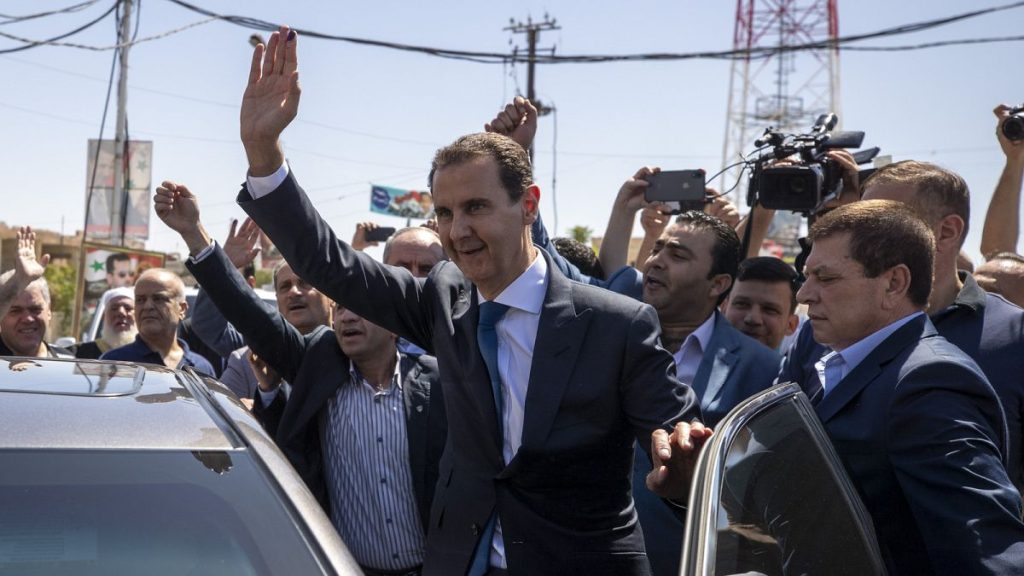The downfall of Bashar al-Assad’s regime in Syria has unearthed a trove of evidence detailing horrific atrocities, including mass graves and notorious prisons bearing witness to systematic torture, rape, executions, and enforced disappearances. This grim discovery has spurred international calls for accountability, urging Syria’s new leaders to preserve evidence for future prosecutions against al-Assad and his officials. While celebrations mark the end of his oppressive rule, the focus now shifts to pursuing justice for the countless victims, estimated to include at least 15,000 deaths from torture since the 2011 uprising, according to the Syrian Network for Human Rights.
However, the path to justice is fraught with complex legal and political hurdles. The International Criminal Court (ICC), the primary venue for prosecuting such crimes, lacks jurisdiction over Syria, as the country is not a signatory to the Rome Statute. A referral by the UN Security Council, which could grant the ICC jurisdiction, remains highly unlikely due to Russia’s staunch support for al-Assad and its veto power. Human rights organizations, such as Human Rights Watch, advocate for Syria’s new leadership to ratify the Rome Statute and grant the ICC retroactive jurisdiction, but the current political landscape makes this a challenging prospect.
A more realistic avenue for prosecution lies in domestic and foreign courts utilizing the principle of universal jurisdiction, which allows states to prosecute individuals for certain grave crimes regardless of where they were committed. Several European countries, including Germany and France, have already initiated cases against Syrian officials, demonstrating a commitment to holding perpetrators accountable. The landmark trial in Germany, resulting in a life sentence for a former high-ranking official, showcases the potential of this legal mechanism. However, experts caution that universal jurisdiction should complement, not replace, Syrian-led efforts. Ideal circumstances dictate fair trials within Syria, adhering to international standards and ensuring witness protection.
The current political dynamics in Syria introduce further complexities. The dominant rebel group, Hayat Tahrir al-Sham (HTS), is designated a terrorist organization, raising concerns about its commitment to due process and adherence to international legal norms. While HTS leaders have pledged to pursue regime figures and called for their extradition, the likelihood of al-Assad himself facing trial remains remote, given his refuge in Russia and Moscow’s unwavering support. Iran, harboring other regime officials, is equally unlikely to cooperate with extradition requests.
Despite these considerable obstacles, human rights experts maintain a cautious optimism. The swift and unexpected collapse of the al-Assad regime underscores the potential for rapid political shifts that could pave the way for accountability. The evolving geopolitical landscape might also weaken Russia’s resolve to protect al-Assad, potentially opening a window for future prosecution. The international community must leverage all available mechanisms, including universal jurisdiction and supporting Syrian-led initiatives, while vigilantly preserving evidence to ensure that justice, however delayed, is ultimately served.
Preserving evidence is crucial for successful prosecutions. International organizations and Syrian civil society have meticulously documented the regime’s crimes, aided by whistleblowers like “Caesar,” whose photographs of torture victims have become iconic evidence in European courts. The UN’s International, Impartial and Independent Mechanism (IIIM) plays a vital role in collecting, preserving, and analyzing evidence for future trials, but its access to crucial sites within Syria hinges on cooperation from the new authorities. The chaotic scenes of ransacked detention centers raise serious concerns about the preservation of evidence, highlighting the urgent need for secure access and international collaboration to prevent the loss or manipulation of crucial materials. The potential for evidence to be exploited for political or commercial gain, or even destroyed by foreign intelligence agencies, further underscores the need for vigilance and international oversight.

